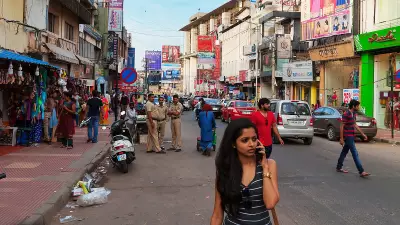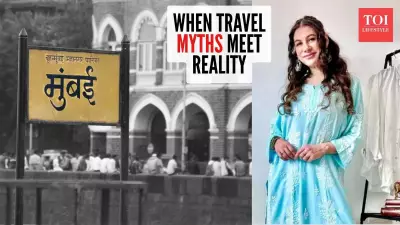
This year marks a monumental milestone in India's cultural history - the 150th anniversary of Vande Mataram, the powerful composition that became the heartbeat of a nation's freedom struggle and eventually, its national song.
The Literary Birth of a Revolution
The story begins in 1875 when legendary Bengali writer Bankim Chandra Chatterjee first penned Vande Mataram as part of his revolutionary novel Anandamath. The song made its public debut in 1882 when the novel was published, but its true power would unfold over the coming decades.
From Pages to Protest: The Freedom Movement Adopts a Anthem
The turning point came in 1896 at the Indian National Congress session in Kolkata, where Nobel laureate Rabindranath Tagore gave Vande Mataram its first major public platform. He sang it with such passion that it immediately resonated with freedom fighters across the country.
The song's popularity skyrocketed during the Swadeshi Movement in 1905, becoming the unofficial anthem of India's struggle for independence. Its powerful words "Vande Mataram" (I bow to thee, Mother) became a rallying cry that united millions against British colonial rule.
The Constitutional Journey to National Recognition
After independence, the Constituent Assembly faced the significant task of choosing a national song. On January 24, 1950, they made a historic decision - while adopting Jana Gana Mana as the national anthem, they officially recognized Vande Mataram as the national song, acknowledging its immense contribution to the freedom movement.
Musical Evolution Through the Ages
The musical journey of Vande Mataram is as rich as its history:
- 1882: First published in Anandamath novel
- 1896: Rabindranath Tagore's historic rendition
- 1905: Became Swadeshi Movement anthem
- 1950: Official recognition as national song
Why Vande Mataram Still Resonates Today
What makes this 150-year-old composition timeless? The song beautifully personifies India as Mother Goddess, combining spiritual devotion with patriotic fervor. Its original Sanskrit verses connect with India's ancient cultural roots while its message of unity and sacrifice continues to inspire new generations.
As we celebrate 150 years of Vande Mataram, we're not just remembering a song - we're honoring the spirit of a nation that found its voice through these powerful words. The journey from a Bengali novel to the nation's heart exemplifies how art can become the soul of a freedom struggle and eventually, the identity of an independent nation.





